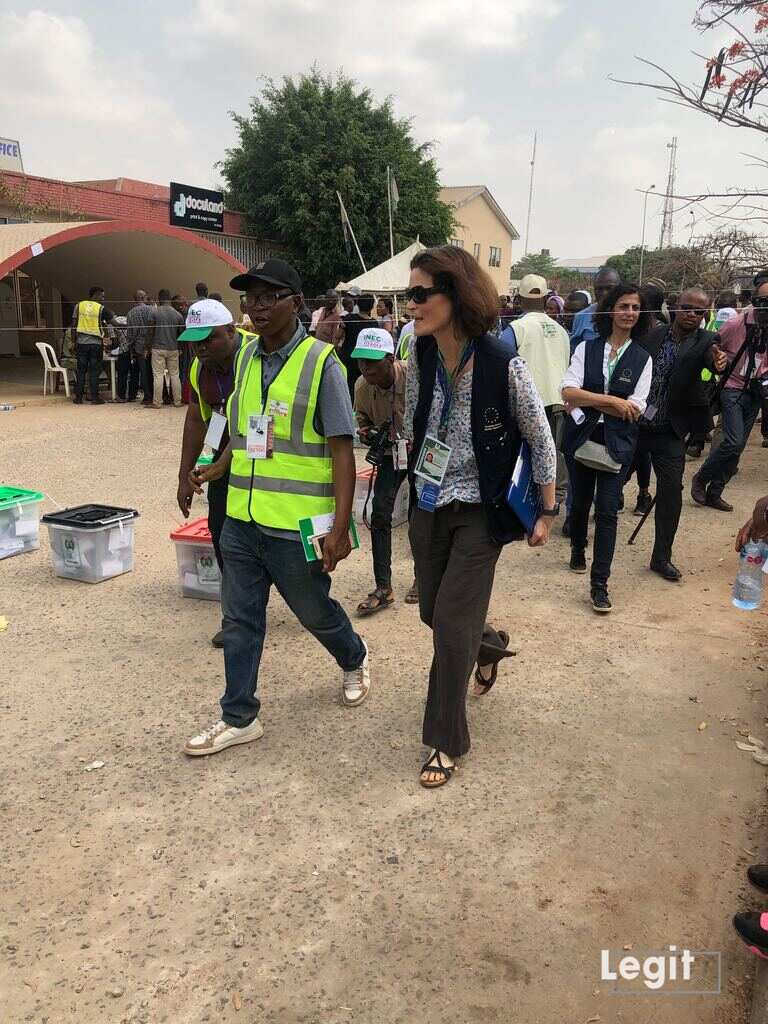EU, Commonwealth observers arrive Abuja polling unit, reveal when final report on elections will be available
- European Union Observation Monitoring Group and Commonwealth group of observers have arrived at a polling unit in Abuja
- The observers said that a final report on the 2019 election process will be made available on Monday, February 25
- Maria Arena, the chief EUOM observer, encouraged Nigerians to shun violence all through the electoral process and said the key to deciding the future of the country lies with the people
- Arena said the group's message to the Nigerian people is to "go and vote for the future"
A team of observers from the European Union Observation Monitoring Group and the Commonwealth group have said that a final report on the 2019 election process will be made available on Monday, February 25.
The chief EUOM observer, Maria Arena, while speaking to journalists including Legit.ng reporter, Nnena Ibeh, at the Area 10/ post office, PU 018; registration area: 01, City Centre in Abuja, said the team is currently collating information from all polling units across Nigeria.
READ ALSO: Elections 2019: I look forward to a 'successful transition' - Atiku
Arena said although the team would not be making hasty reports, it has however, observed that many Nigerians are happy to vote.

Maria Arena speaks with an INEC official after arriving at the polling station (Photo credit: Legit.ng)
Source: Original
Encouraging Nigerians to shun violence all through the electoral process, Arena said the key to deciding the future of the country lies with the people.
She said: "We will have a final report on the election on February 25. We will have all the information ready; but now, we are collating information and we don't want to give our impressions now.
"What is important is that we have these elections today. It is important for Nigerian people. We have seen a lot of Nigerian people being happy to be here and to vote and this is really important.
"And we have to give this message to Nigerian people - to go and vote for the future."
PAY ATTENTION: Install our latest app for Android, read best news on Nigeria’s #1 news app
Recall that Legit.ng previously reported that the European Union said on Monday, February 18, that none of its Election Observation Missions in Nigeria had left the country in spite of the postponement of the elections.
The press officer, EU Election Observation Mission, Sarah Fradgley, said this in a message from Abuja.
Fradgley said that all the EU Election Observation Missions were on ground to observe the presidential and National Assembly as well as the governorship and state Houses of Assembly elections shifted to February 23 and March 9, respectively.
NAIJ.com (naija.ng) -> Legit.ng: Same great journalism, upgraded for better service!
2019 election: Who will win? Anambra residents speak - on Legit TV:
Source: Legit.ng
from Nigeria News today & Breaking Naija news ▷ Read on Legit.ng 24/7 https://ift.tt/2T4spZx
via EDUPEDIA24/7
Comments
Post a Comment